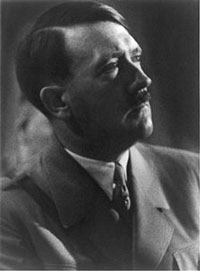An "exchange of notes" is a record of a routine
agreement, that has many similarities with the private law contract. The
agreement consists of the exchange of two documents, each of the
parties being in the possession of the one signed by the representative
of the other. Under the usual procedure, the accepting State repeats the
text of the offering State to record its assent. The signatories of the
letters may be government Ministers, diplomats or departmental heads.
The technique of exchange of notes is frequently resorted to, either
because of its speedy procedure, or, sometimes, to avoid the process of
legislative approval.28
In another perspective, the terms "exchange of notes"
and "executive agreements" have been used interchangeably, exchange of
notes being considered a form of executive agreement that becomes
binding through executive action.29
On the other hand, executive agreements concluded by the President
"sometimes take the form of exchange of notes and at other times that of
more formal documents denominated ‘agreements’ or ‘protocols.’"30 As former US High Commissioner to the Philippines Francis B. Sayre observed in his work, The Constitutionality of Trade Agreement Acts:
x x x
Article 2 of the Vienna Convention on the Law of
Treaties defines a treaty as "an international agreement concluded
between states in written form and governed by international law,
whether embodied in a single instrument or in two or more related
instruments and whatever its particular designation."32
International agreements may be in the form of (1) treaties that
require legislative concurrence after executive ratification; or (2)
executive agreements that are similar to treaties, except that they do
not require legislative concurrence and are usually less formal and deal
with a narrower range of subject matters than treaties.33
Under international law, there is no difference
between treaties and executive agreements in terms of their binding
effects on the contracting states concerned,34 as long as the negotiating functionaries have remained within their powers.35 Neither, on the domestic sphere, can one be held valid if it violates the Constitution.36
Authorities are, however, agreed that one is distinct from another for
accepted reasons apart from the concurrence-requirement aspect.37
As has been observed by US constitutional scholars, a treaty has
greater "dignity" than an executive agreement, because its
constitutional efficacy is beyond doubt, a treaty having behind it the
authority of the President, the Senate, and the people;38 a ratified treaty, unlike an executive agreement, takes precedence over any prior statutory enactment.39
Petitioner parlays the notion that the Agreement
is of dubious validity, partaking as it does of the nature of a treaty;
hence, it must be duly concurred in by the Senate. Petitioner takes a
cue from Commissioner of Customs v. Eastern Sea Trading, in which
the Court reproduced the following observations made by US legal
scholars: "[I]nternational agreements involving political issues or
changes of national policy and those involving international
arrangements of a permanent character usually take the form of treaties
[while] those embodying adjustments of detail carrying out well
established national policies and traditions and those involving
arrangements of a more or less temporary nature take the form of
executive agreements." 40
Pressing its point, petitioner submits that the subject of the Agreement does not fall under any of the subject-categories that are enumerated in the Eastern Sea Trading case,
and that may be covered by an executive agreement, such as
commercial/consular relations, most-favored nation rights, patent
rights, trademark and copyright protection, postal and navigation
arrangements and settlement of claims.
In addition, petitioner foists the applicability to the instant case of Adolfo v. CFI of Zambales and Merchant,41 holding that an executive agreement through an exchange of notes cannot be used to amend a treaty.
We are not persuaded.
The categorization of subject matters that may be covered by international agreements mentioned in Eastern Sea Trading
is not cast in stone. There are no hard and fast rules on the propriety
of entering, on a given subject, into a treaty or an executive
agreement as an instrument of international relations. The primary
consideration in the choice of the form of agreement is the parties’
intent and desire to craft an international agreement in the form they
so wish to further their respective interests. Verily, the matter of
form takes a back seat when it comes to effectiveness and binding effect
of the enforcement of a treaty or an executive agreement, as the
parties in either international agreement each labor under the pacta sunt servanda42 principle.
BAYAN MUNA, as represented by Rep. SATUR OCAMPO, Rep. CRISPIN BELTRAN, and Rep. LIZA L. MAZA, Petitioner,
vs. ALBERTO ROMULO, in his capacity as Executive Secretary, and BLAS F. OPLE, in his capacity as Secretary of Foreign Affairs, Respondents.
